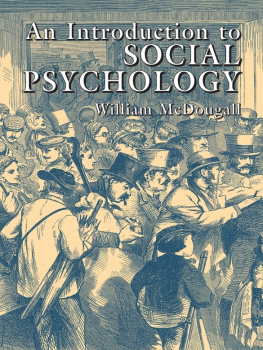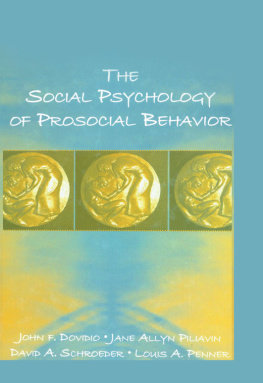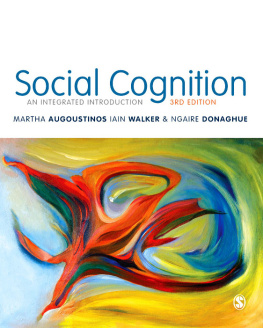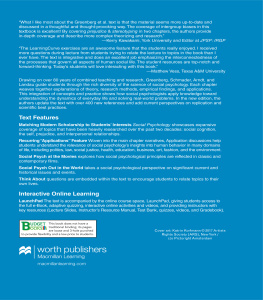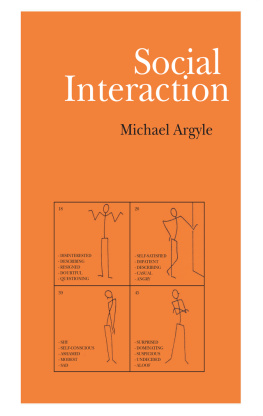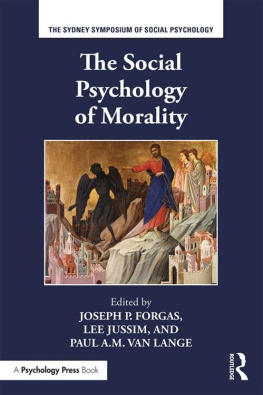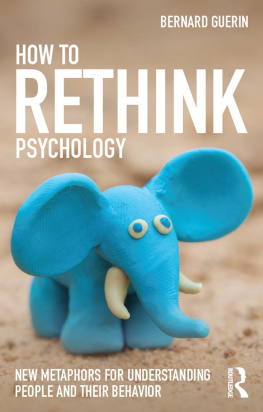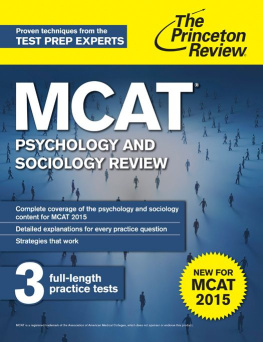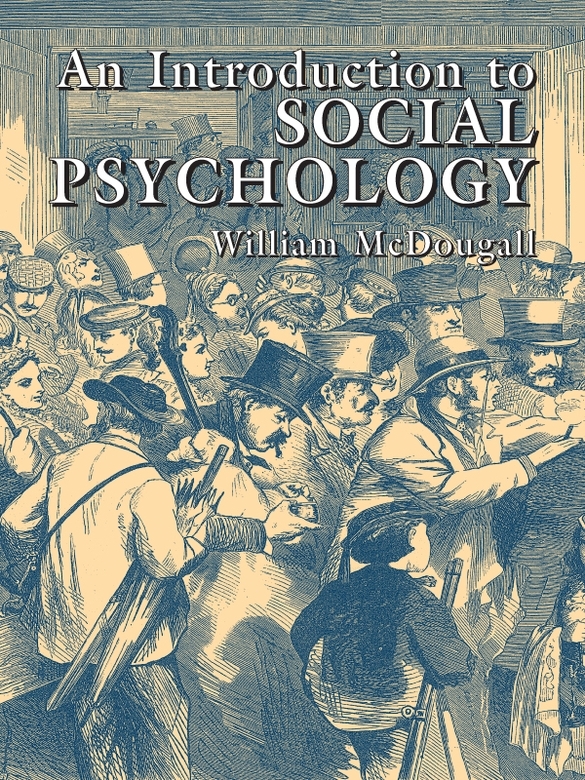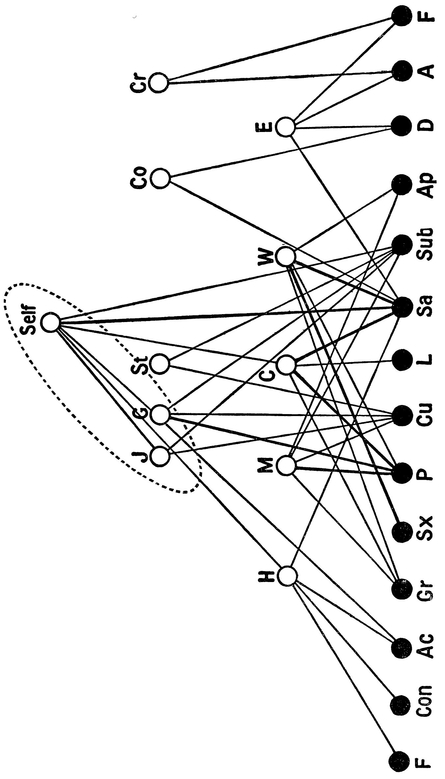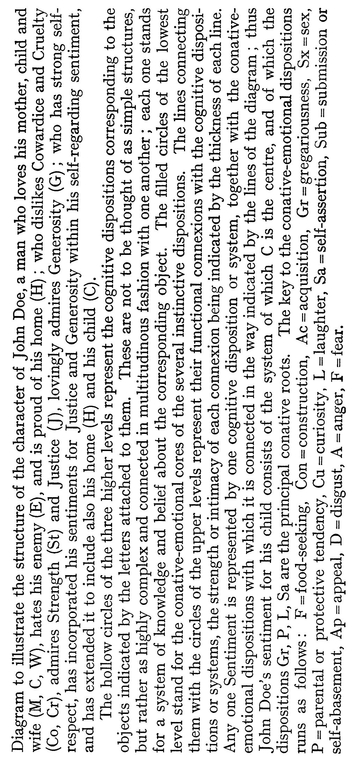CHAPTER II
THE NATURE OF INSTINCTS AND THEIR PLACE IN THE CONSTITUTION OF THE HUMAN MIND
T HE human mind has certain innate or inherited tendencies which are the essential springs or motive powers of all thought and action, whether individual or collective, and are the bases from which the character and will of individuals and of nations are gradually developed under the guidance of the intellectual faculties. These primary innate tendencies have different relative strengths in the native constitutions of the individuals of different races, and they are favoured or checked in very different degrees by the very different social circumstances of men in different stages of culture ; but they are probably common to the men of every race and of every age. If this view, that human nature has everywhere and at all times this common native foundation, can be established, it will afford a much-needed basis for speculation on the history of the development of human societies and human institutions. For so long as it is possible to assume, as has often been done, that these innate tendencies of the human mind have varied greatly from age to age and from race to race, all such speculation is founded on quicksand and we cannot hope to reach views of a reasonable degree of certainty.
The evidence that the native basis of the human mind, constituted by the sum of these innate tendencies, has this stable unchanging character is afforded by comparative psychology. For we find, not only that these tendencies, in stronger or weaker degree, are present in men of all races now living on the earth, but that we may find all of them, or at least the germs of them, in most of the higher animals. Hence there can be little doubt that they played the same essential part in the minds of the primitive human stock, or stocks, and in the pre-human ancestors that bridged the great gap in the evolutionary series between man and the animal world.
These all-important and relatively unchanging tendencies, which form the basis of human character and will, are of two main classes :
(1) The specific tendencies or instincts ;
(2) The general or non-specific tendencies arising out of the constitution of mind and the nature of mental process in general, when mind and mental process attain a certain degree of complexity in the course of evolution.
In the present and seven following chapters I propose to define the more important of these specific and general tendencies, and to sketch very briefly the way in which they become systematised in the course of character-formation ; and in the second section of this volume some attempt will be made to illustrate the special importance of each one for the social life of man.
Contemporary writers of all classes make frequent use of the words instinct and instinctive, but, with very few exceptions, they use them so loosely that they have almost spoilt them for scientific purposes. On the one hand, the adjective instinctive is commonly applied to every human action that is performed without deliberate reflection ; on the other hand, the actions of animals are popularly attributed to instinct, and in this connection instinct is vaguely conceived as a mysterious faculty, utterly different in nature from any human faculty, which Providence has given to the brutes because the higher faculty of reason has been denied them. Hundreds of passages might be quoted from contemporary authors, even some of considerable philosophical culture, to illustrate how these two words are used with a minimum of meaning, generally with the effect of disguising from the writer the obscurity and incoherence of his thought. The following examples will serve to illustrate at once this abuse and the hopeless laxity with which even cultured authors habitually make use of psychological terms. One philosophical writer on social topics tells us that the power of the State is dependent on the instinct of subordination, which is the outcome of the desire of the people, more or less distinctly conceived, for certain social ends: another asserts that ancestor-worship has survived amongst the Western peoples as a mere tradition and instinct: a medical writer has recently asserted that if a drunkard is fed on fruit he will become instinctively a teetotaler: a political writer tells us that the Russian people is rapidly acquiring a political instinct: from a recent treatise on morals by a distinguished philosopher two passages, fair samples of a large number, may be taken; one describes the notion that blood demands blood as an inveterate instinct of primitive humanity; the other affirms that punishment originates in the instinct of vengeance: another of our most distinguished philosophers asserts that popular instinct maintains that there is a theory and a justification of social coercion latent in the term self-government. As our last illustration we may take the following passage from an avowedly psychological article in a recent number of the Spectator : The instinct of contradiction, like the instinct of acquiescence, is inborn.... These instincts are very deep-rooted and absolutely incorrigible, either from within or from without. Both springing as they do from a radical defect, from a want of original independence, they affect the whole mind and character. These are favourable examples of current usage, and they justify the statement that these words instinct and instinctive are commonly used as a cloak for ignorance when a writer attempts to explain any individual or collective action that he fails, or has not tried, to understand. Yet there can be no understanding of the development of individual character or of individual and collective conduct unless the nature of instinct and its scope and function in the human mind are clearly and firmly grasped.
It would be difficult to find any adequate mention of instincts in treatises on human psychology written before the middle of last century. But the work of Darwin and of Herbert Spencer has lifted to some extent the veil of mystery from the instincts of animals, and has made the problem of the relation of instinct to human intelligence and conduct one of the most widely discussed in recent years.
Among professed psychologists there is now fair agreement as to the usage of the terms instinct and instinctive. By the great majority they are used only to denote certain innate specific tendencies of the mind that are common to all members of any one species, racial characters that have been slowly evolved in the process of adaptation of species to their environment and that can be neither eradicated from the mental constitution of which they are innate elements nor acquired by individuals in the course of their lifetime. A few writers, of whom Professor Wundt is the most prominent, apply the terms to the very strongly fixed, acquired habits of action that are more commonly and properly described as secondarily automatic actions, as well as to the innate specific tendencies. The former usage seems in every way preferable and is adopted in these pages.
But, even among those psychologists who use the terms in this stricter sense, there are still great differences of opinion as to the place of instinct in the human mind. All agree that man has been evolved from pre-human ancestors whose lives were dominated by instincts ; but some hold that, as mans intelligence and reasoning powers developed, his instincts atrophied, until now in civilised man instincts persist only as troublesome vestiges of his pre-human state, vestiges that are comparable to the vermiform appendix, and which, like the latter, might with advantage be removed by the surgeons knife, if that were at all possible. Others assign them a more prominent place in the constitution of the human mind ; for they see that intelligence, as it increased with the evolution of the higher animals and of man, did not supplant and so lead to the atrophy of the instincts, but rather controlled and modified their operation ; and some, like G. H. Schneider maintain that man has at least as many instincts as any of the animals, and assign them a leading part in the determination of human conduct and mental process. This last view is now rapidly gaining ground ; and this volume, I hope, may contribute in some slight degree to promote the recognition of the full scope and function of the human instincts ; for this recognition will, I feel sure, appear to those who come after us as the most important advance made by psychology in our time.

